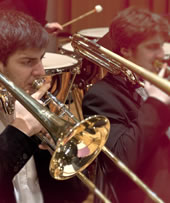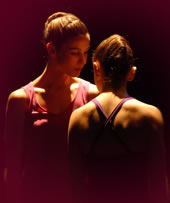


- aFont size -
- AFont size +
- PrintPrint this page
- version pdfPage in PDF format
Academic matters
Assessment
Continuous Assessment
One of the crucial aspects of the Bologna Process is the importance given to continuous assessment in the assessment process as a whole, for both main and complementary subjects.
Teachers have been registering assessments online since the year 2010/2011. Students can check their assessments here.
Grades range from 0 to 20. 20/20 is the top grade. Each subject is validated when the student’s grade reaches 10/20.
Music
Main subjects assessment
Assessments take place during the three weeks before Spring Holidays for first and second year students enrolled in the first cycle (also called DNSPM 1 and 2) of instrumental and vocal studies (except early music students) and some students enrolled in the first year of the second cycle (M1). Assessments take place before a jury made of external representatives and teachers of other subjects inside the CNSMD.
End of studies public exam
Public exams for the end of study cycles are held in May and June.
At the end of the first cycle, students must have sound instrumental and musical basis in order to tackle in an always more autonomous way an extended repertoire of soloist and ensemble works.
The second cycle’s focus is on the autonomy. Recitals are therefore usually free and give an opportunity to the student to prove their ability to master the stage. The Student Affairs Office publishes these recitals’ programs, which are a very important component of the institution’s musical study memory.
Viva for memoir of Master’s studies
Second-year master’s students write and present before a jury a thesis. Two juries made of teachers from other schools and performer/researchers assess their presentation.
Master’s thesis can be researches about personal experiences, creations of shows, ethnomusicology. They can tackle issues concerning the body and the instrument, compositions, contemporary music, keyboard and percussions, etc.
Dance
Main subject assessment
Every semester of the first three year (preparatory, first and second years) has to be validated by a continuous assessment made by main subject teachers.
The main teacher’s grade and the subsidiary teachers’ grades have a ratio of 3 to 1.
Preparatory year
During the second semester of the preparatory year, a jury assesses students in their main subjects as well as the subsidiary one.
Results determine the future studies of students:
- if they are allowed to pursue their studies in the same department
- if they are to be transferred between classical and contemporary sections
- if they should stop their studies at the CNSMD
First year (DNSPD 1)
At the end of the second semester, students are assessed on:
- an imposed variation for classical and contemporary students
- a neoclassical variation for classical students
- a personal composition for contemporary students
- course exercises
- a contemporary variation for classical students
- a classical variation for contemporary students
Second year (DNSPD 2)
At the end of the second semester, students are assessed by a jury on:
- an imposed variation for both classical and contemporary students
- a free variation for both, with the teacher’s and the Dance studies Director’s agreement
- an imposed variation in the complementary subject for both
- a pas de deux for classical students or a duo for contemporary students
- a personal composition for both
Youth Ballet
During their last year in the CNSMD, dance students participate in the Youth Ballet. Its purpose is to deepen their repertoire knowledge and to put all the notions learned through their studies together by the realisation of creations in situations of performance.
During the second semester, students present the performance certificate, a public exam before a jury that takes the form of a show and leads a grade. The ballet master gives a continuous assessment grade for both semesters, with the agreement of the Dance Studies Director. Guest choreographers give a continuous assessment grade during the first semester and are invited to sit on the jury of the performance certificate.
Direct access


